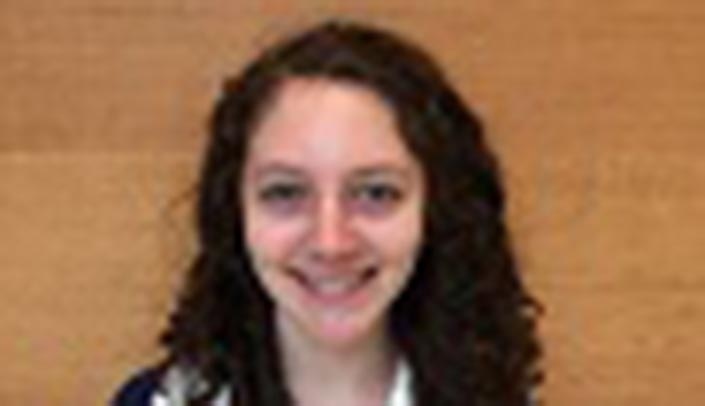On May 29, the Nebraska Institutional Development Award Program (IDeA) Networks of Biomedical Research Excellence (INBRE) program welcomed 28 undergraduate students from across Nebraska as they embark on their summer research experience at Creighton University, the University of Nebraska-Lincoln and UNMC.
The breakdown of this year’s 28 INBRE Scholars include:
- Representatives of nine colleges and universities;
- 18 women; and
- 10 men.
Below Mika Caplan, a microbiology major at the University of Nebraska-Lincoln, talks about her INBRE experience.
Tell me about yourself. Who are your heroes?
Although I’ve lived in Nebraska for most of my life, I was born in Jerusalem, Israel to two scientists and speak Hebrew at home. When I’m not studying, I enjoy reading and traveling with friends and family. Science has always been of intriguing and mysterious interest to me so I especially admire those who have dedicated their lives to finding truth in science including Rosalind Franklin, Charles Darwin, and Marie Curie. These leading scientists have shown true devotion and passion for science in an encouraging way to young aspiring scientists such as myself.
What are your career goals?
After graduating with a bachelor’s degree in microbiology with minors in biochemistry and Spanish from the University of Nebraska-Lincoln, I intend to continue on to pursue a Ph.D. in the biomedical field. Though I have not yet chosen a particular subject of interest in this area, I have no doubt that my research will involve my particular interests in cell biology, immunology, cancer biology, and virology. Following a PhD, I hope to advance to postdoctoral training that will best prepare me for a career in academia.
How did you become interested in science?
As a daughter of two scientists, I grew up hearing about research in the lab as common dinner table talk. Consequently, I was always very curious and when I became interested in biology, I started asking my parents endless questions. The answers I received were always fascinating, but even more exciting were the questions they couldn’t answer. I believe that the most enticing part about a career in science is discovering ways to answer these questions that have never been answered before. Not only do I hope to continue doing research in graduate school and during postdoctoral training, but I also hope to acquire the experience and skills necessary to improve my research techniques and methodologies, critical thinking, and overall analytical capabilities. Over the last summer, I worked in Dr. Shannon Buckley’s lab in the UNMC Department of Genetics, Cell Biology and Anatomy, and I believe that the opportunity at UNMC helped define the essential research process as well as convince me that a career in science would be a good fit for my curiosity and motivation to learn.
